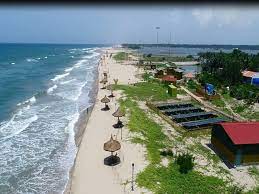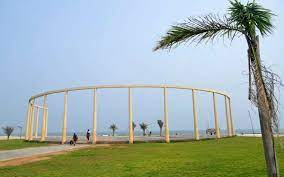24 Sep Blue Flag Certification GS-3: Conservation, Environmental Pollution & Degradation
CONTEXT
Two more beaches in India have been awarded ‘Blue Flag’ certification, an international eco-level tag, taking the total number of such beaches in the country to 10. Foundation for Environment Education (FEE), Denmark has awarded the Blue Flag Certification to Kovalam (Tamil Nadu) and Eden (Puducherry), taking the total number of such beaches in the country to 10. Foundation for Environment Education in Denmark (FEE) which accords the globally recognized eco-label – Blue Flag certification, has also given re-certification for eight nominated beaches Shivrajpur- Gujarat, Ghoghla-Diu, Kasarkod and Padubidri-Karnataka, Kappad-Kerala, Rushikonda- Andhra Pradesh, Golden-Odisha and Radhanagar- Andaman and Nicobar, which were awarded the Blue Flag certificate last year.
KOVALAM BEACH

EDEN BEACH
ABOUT BLUE FLAG CERTIFICATION
-
It is an Globally recognised eco-label that is accorded based on 33 criterias. These criterias are divided into 4 major category namely,
-
Environmental education and information
-
Bathing water quality
-
Environmental management
-
Conservation and safety services in the beaches
-
-
Blue Flag beaches are considered one of the cleanest beaches of the world. It is an eco-tourism model endeavouring to provide the tourists/beachgoers clean and hygienic bathing water, facilities, a safe and healthy environment and sustainable development of the area.
-
It is accorded by the international jury composed of eminent members – United Nations Environment Programme (UNEP), United Nations World Tourism Organisation (UNWTO), Denmark-based NGO Foundation for Environmental Education (FEE) and International Union for Conservation of Nature (IUCN).
-
On the lines of Blue Flag certification, India has also launched its own eco-label BEAMS (Beach Environment & Aesthetics Management Services).
India’s BEAMS Programme
-
Beach Environment & Aesthetics Management Services comes under ICZM (Integrated Coastal Zone Management) project.
-
This was launched by the Society of Integrated Coastal Management (SICOM) and the Union Ministry of Environment, Forest and Climate Change (MoEFCC).
-
The objectives of BEAMS program is to:
-
Abate pollution in coastal waters,
-
Promote sustainable development of beach facilities,
-
Protect & conserve coastal ecosystems & natural resources,
-
Strive and maintain high standards of cleanliness,
-
Hygiene & safety for beachgoers in accordance with coastal environment & regulations.
-
-
It has helped in saving 1,100 ml/year of municipal water through recycling; educating around 1,25,000 beachgoers about responsible behaviour at the beaches; providing alternate livelihood opportunities to 500 fishermen families through pollution abatement, safety and services and has also increased footfall for recreation activities at the beaches by approximately 80% leading to economic development.
BY ANSHUM VERMA
FACULTY (POLITY,GEOGRAPHY AND ENVIRONMENT)
24nd september 2021 current Affairs Download
Plutus IAS Current Affair Team Member




No Comments